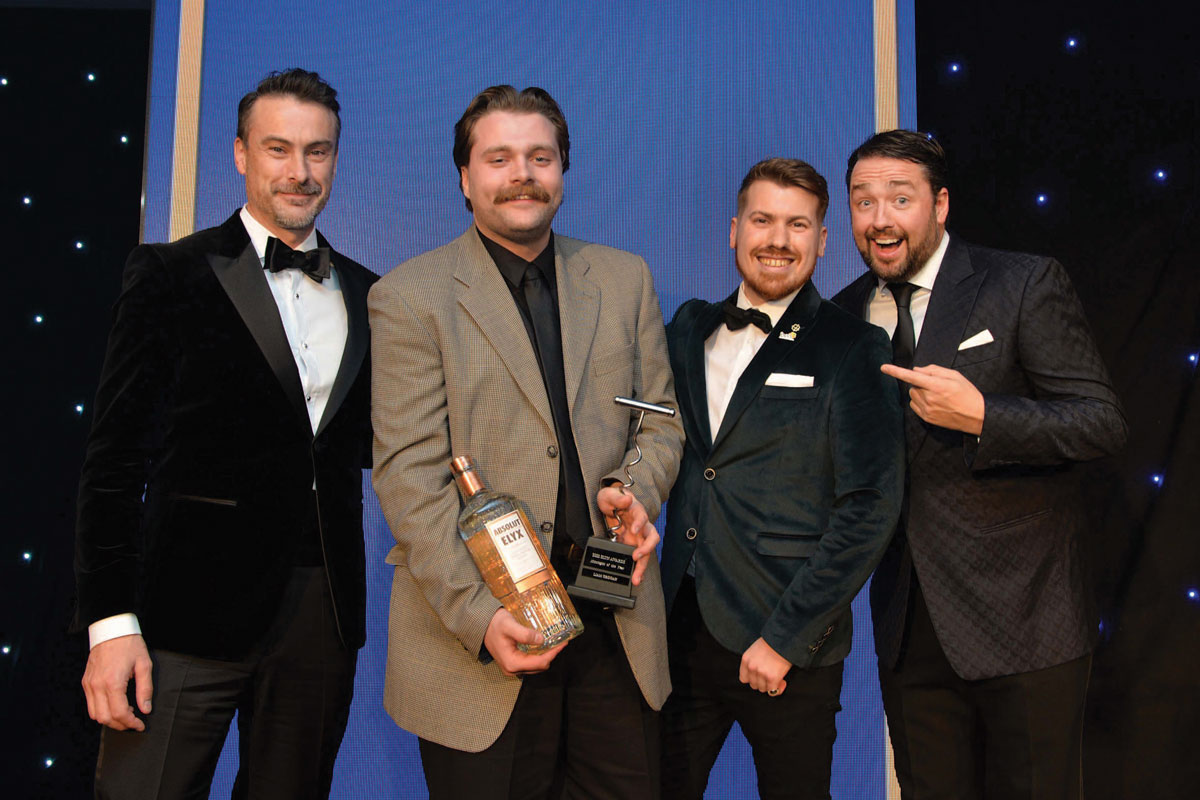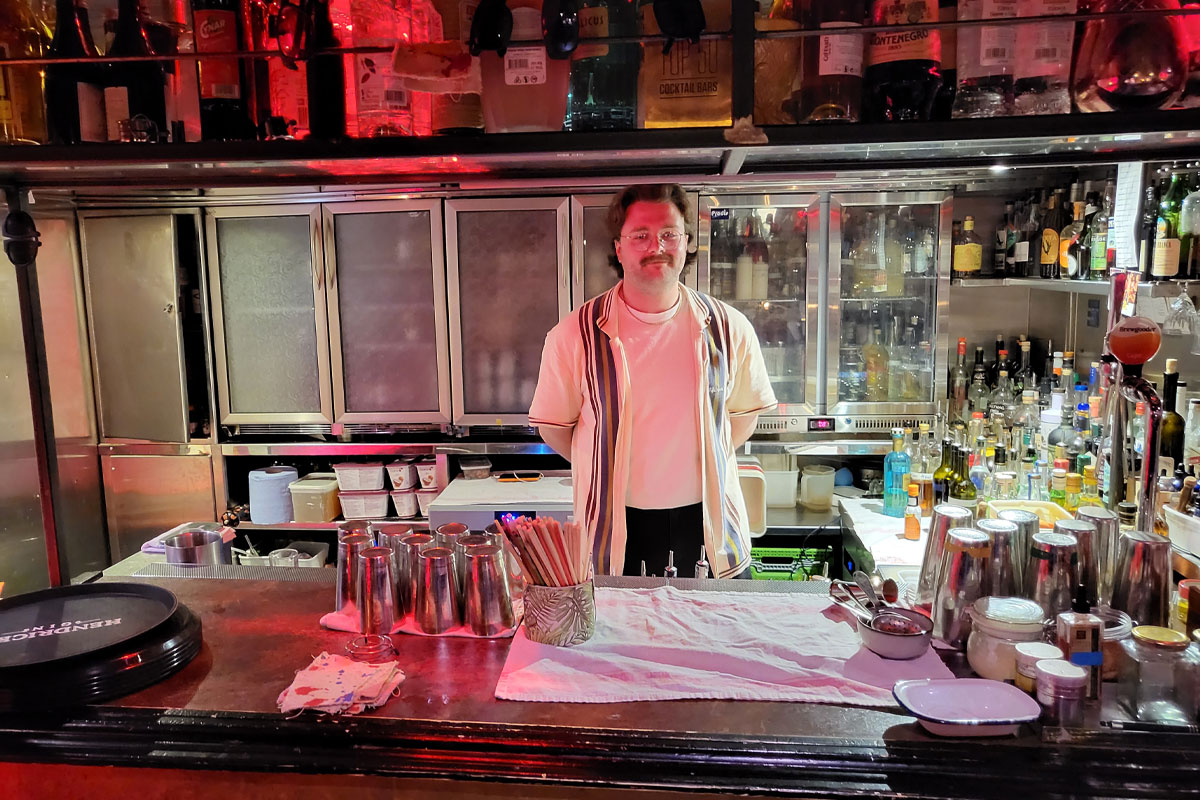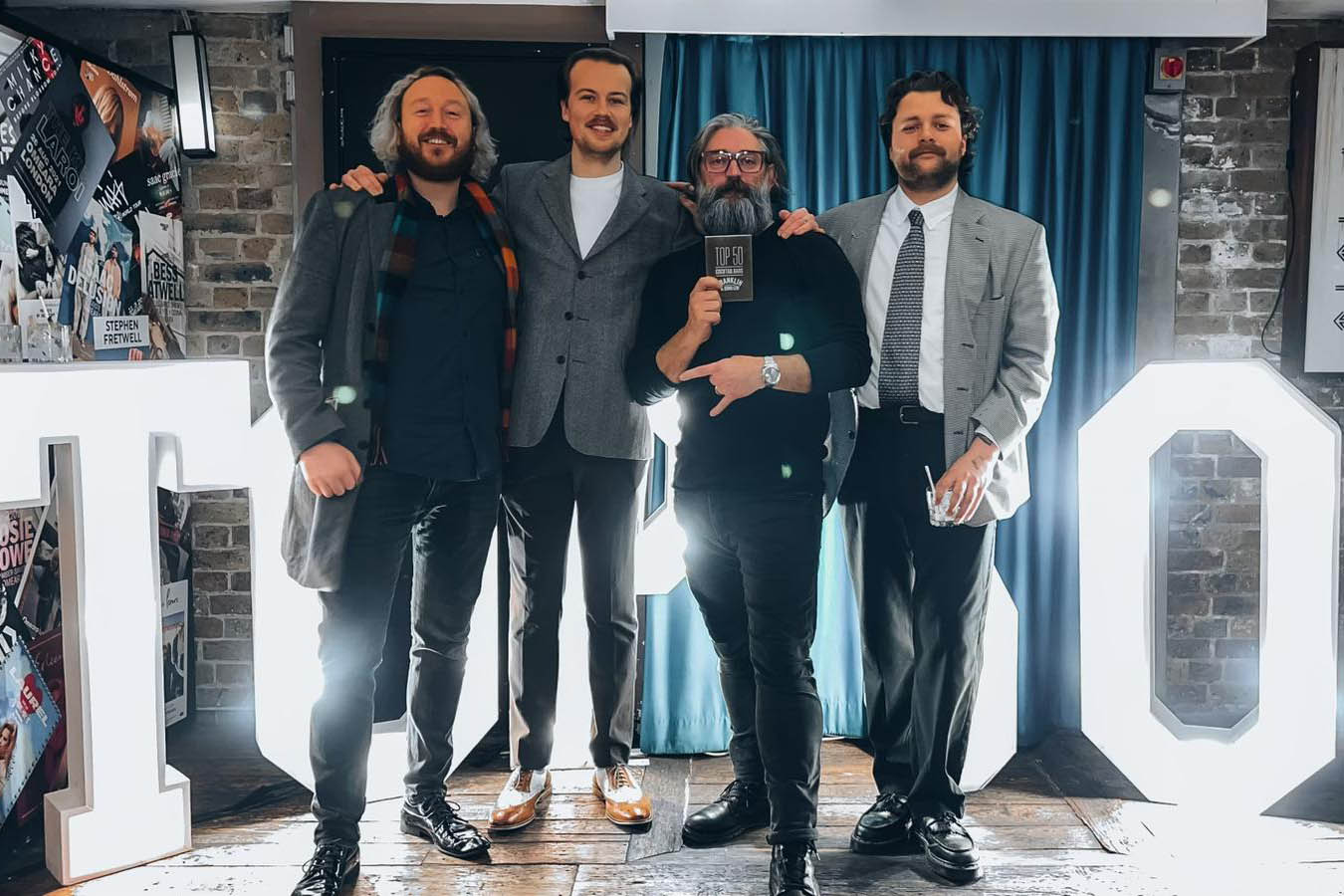
BY his own admission Liam Grogan, SLTN’s reigning Mixologist of the Year, wasn’t always the best bartender.
Liam, who tends bar at Glasgow speakeasy The Absent Ear, started his career at Glasgow’s Oran Mor before moving out to Melbourne and working at a Japanese whisky and sake bar.
“I kinda played up to the ‘aw yeah I know my whiskies, I’m Scottish’ and found out I was even worse at bartending over there than I was here,” Liam told SLTN last month.
“I went out one night and the bar manager took me aside – he was leaving – and said ‘I don’t mean any harm to you Liam, you’re a lovely boy, but you’re the worst bartender I’ve ever met in my entire life’.”
Ouch.
Determined to shake that label, Liam went out the next day, bought three cocktail books and got to work.
“I hate being told I’m terrible at things,” he said. “Whether it’s Monopoly or bartending.”
It’s safe to say that wasn’t an issue for long.
After returning from Australia, Liam sharpened his skills at Glasgow bars including The Pacific, Drugstore Social, Kelvingrove Cafe and then Tiki Bar, before opening his own venue – Flùr – in Glasgow’s Partick area, along with partner Tess Dewar and Steven Aitken.
“It was so much work but it was a lot of fun,” said Liam. “And it was the first experience we’d had of building a brand from the ground up.”

Not long after the Flùr lease expired Liam was offered a position at the recently-opened Absent Ear.
Owned by the team behind St Luke’s and located in the basement of sister venue The Amsterdam, The Absent Ear takes its inspiration from Vincent Van Gogh, with visitors pressing a buzzer set into a portrait of the legendary artist in order to gain entrance.
If anything, the eccentric tone steps up a notch once inside, with the drinks list featuring a ‘maximalist’ approach to cocktails that includes accompanying puzzles or activities the customer can engage with.
As SLTN caught up with Liam the team were working on a drink that will be accompanied by a ‘bomb’ that has to be defused by the customer before the drink arrives.
“We had one on last year called the Holy Sacrament,” said Liam.
“It tastes like a glass of communion wine, but before you get it you need to make a confession, which goes in the confession box. It’s totally anonymous. And then you receive your drink with a little waffle which is meant to serve as a communion wafer.
“That’s probably been my favourite because it’s provided so many moments of hilarity. The things people will write down on a piece of paper…”
(Having read some of these confessions in the past, SLTN can confirm that they were lively, ranging from mildly amusing to genuinely hair-raising.)
Having been in and around the Glasgow cocktail scene for the past eight years, Liam has been well positioned to see the city’s changing tastes in spirits first-hand, a journey that has seen Glasgow dive into the gin revolution and then embrace a wider range of spirits on the other side.
Liam said: “I don’t know where spirits consumption is going, but I definitely think the real estate behind a bar is a lot less gin than it has been for the past ten years.
“Tequila’s obviously got a lot more popular. But I haven’t seen one spirit really grabbing the reins.
“A lot of flavoured spirits came out in lots of different categories, which I have no problem with. I think it’s a great introduction into the category.
“If people like strawberry or raspberry rums you can sell them an Agricole two or three years down the line. And that’s absolutely a victory.”
Glasgow’s bar scene has continued to evolve, too, and Liam reckoned there are now scores of bars across the city offering quality cocktails.
“There was definitely a generation of bartenders in Glasgow who kind of laid down the foundations of turning Glasgow into an excellent city for cocktails,” he said.
“They opened places like The Finnieston, Kelvingrove Café, the old Blythswood. There was a small contingent of excellent cocktail bars. And what you’re seeing now is the legacy of the bar managers from that era spreading the love to other places. Now you’re probably talking 30 places in Glasgow you can get a really strong cocktail offer. I think it’s definitely in a much better place. And it feels like it’s moving with momentum now into an even better place.”
A big part of the award-winning mixologist’s confidence is down to the passion and talent of the city’s young bartenders – many of whom are just a year or so into their careers but, said Liam, are keen to keep pushing Glasgow’s cocktail-making reputation forward.

And he credits former Absent Ear bartender Zach Sapato with helping this new crop to develop their knowledge and skills.
Sapato set up bartender community HospoHang last year and the group has hosted regular events for the city’s bartenders.
“You’ve got this group of younger folk that are coming up. It’s all folk that started a year or a year and a half ago, who are like 18, 19, 20, sometimes a little bit older, but they’ve just caught that bartending bug.
“They’re the ones reading the books now, they’re the ones that will come to every event, because it’s another bit of knowledge, another bit of networking.
“They’re really keen to establish themselves or prove themselves by going to these things. The last time I went to one of Zach’s events I couldn’t get a seat. There were maybe 40 people at a rum tasting on a Monday afternoon, which is just ridiculous. So it’s this really exciting group of kids that seem to just be doing everything right.”
And now it’s Liam and his contemporaries who are the experienced faces helping the younger crop to sharpen their skills.
“There’s two ways of doing it,” he said. “There’s the old grump, who’s the sage and has the wisdom of bartending but doesn’t give anything away. You just have to watch them on service.
“Or there’s the approachability method, and I think that’s where I’d like to see myself – just being a person you can come and visit, you can ask any questions, and I’ll give you an honest point of view on anything you’re doing.
“And just making sure that they know we’re still here. Not because we haven’t found anything else, but because we want to be here.
“I want them to look at me and think ‘I don’t have to get a job in a call centre in the next five years. I can still have fun here’. Because that’s still what I’m doing.”




















